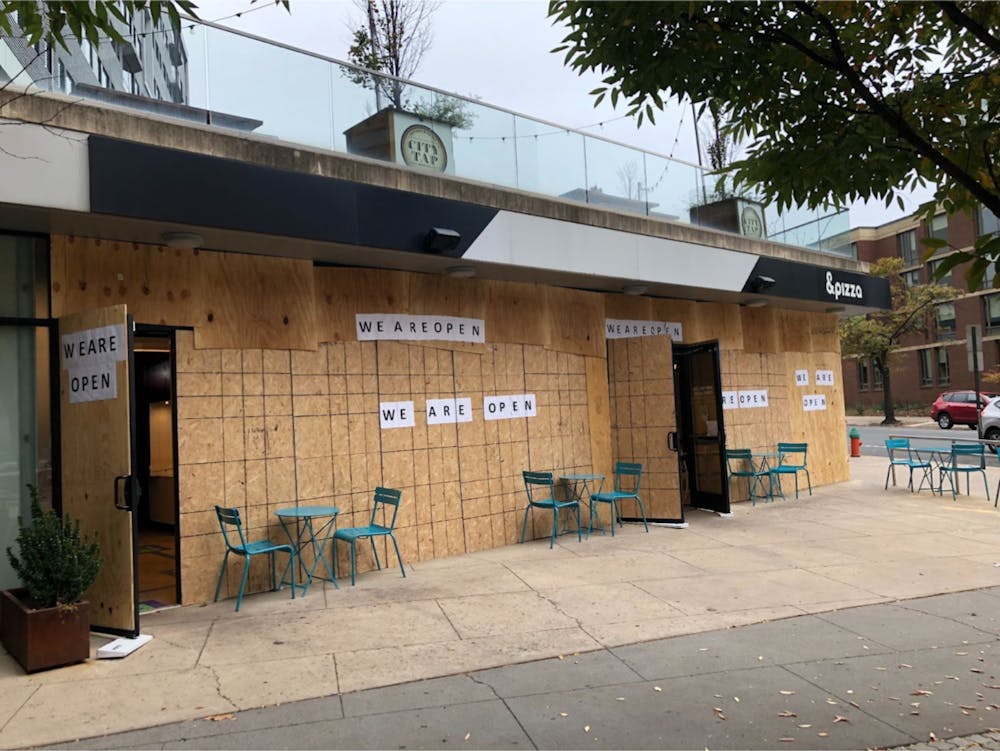The year 2021 has been a year of conflicting emotions for me. I experienced isolation in living alone, and contentment in developing closer friendships. I felt hopelessness during the Jan. 6 attack on the United States Capitol, and hope for the rollout of COVID-19 vaccines. One thing that has given my life purpose during this pandemic has been documenting my experiences with the intention of preserving them.
As a way to reflect upon 2021, I would like to encourage everyone to archive their stories. I will share a piece of my story and then offer some suggestions of how you can preserve your experiences.
In mid-March 2020, just as COVID-19 upended our lives and we went into lockdown, I started taking pictures and journaling about my experiences. I took a picture of a grocery store bereft of produce. A picture of a closed-down beach park in my hometown. In fall 2020 at Penn, I documented boarded-up stores and protests near 40th and Walnut streets.

In December 2020, I began to compile journal entries and pictures that I wanted to share with the Penn COVID-19 Community Archiving Project. The project invites all members of the Penn family and the West Philadelphia community to contribute their stories to the collection.
J.M. Duffin — acting university archivist at Penn Archives — shared that the project was started in May 2020 as a proactive step to make sure that the Penn community intentionally documents this pandemic better than the 1918 influenza epidemic.
As of the time of this writing, the archive has received 45 submissions. I think we can increase this number substantially. The more materials people share (e.g. pictures, journal entries, physical items, etc), the more complete a picture we will have of this tumultuous period in our lives.
SEE MORE FROM JADEN CLOOBECK:
Someone may argue that they don’t need to share their experiences because newspapers are already documenting pandemic stories, such as The Daily Pennsylvanian’s 52 Weeks, Faces, and Stories Project. While I think projects like these are a great start, capturing more stories will take individual initiative.
You may be thinking, “Why should I spend the time contributing to this archive if we are still living in the pandemic?” Duffin described that there are advantages and disadvantages of recording our memories as COVID-19 still continues to unfold. An advantage is that we are more likely to remember the fine details now as opposed to years from now. A disadvantage is that we are less able to understand the long-term impact of COVID-19 on our lives.
It is important to record our experiences both now and in the future. That way, we can have both detailed recollections and poignant reflections in hindsight.
How can you protect your privacy? Duffin describes that in your submission form, you can explicitly state how long you want your materials closed for, which can range from 25 years to your lifetime.
If you don’t know where to start in organizing what you’d like to contribute, I recommend going online to skim the Library of Congress’ guide on personal archiving projects.
If you decide to make a submission to Penn’s COVID-19 archive, here are some tips. First, Duffin advises you to keep it simple! You do not need to capture your entire pandemic experience in what you send in. Focusing on a single story from this year may be more manageable.
You can send in almost anything to this archive: Pictures, journal entries, or any physical or digital item that you find meaningful. If you have multiple submissions and you want to make your life easy, compress all your files into a single zip file so you only have to send in a single form.
Of course, use good judgment in making submissions. Duffin said they will not be accepting used masks. Duffin shared that people should avoid providing others’ health information without their consent since this would be a violation of HIPAA.
If you send in a photograph, include the names of the people in the picture (you do not need the people’s consent for pictures).
If you need inspiration, you can look to other outstanding COVID-19 oral history projects, such as Generation Pandemic, created by College seniors Alan Jinich and Max Strickberger.
Whatever you decide to do, I hope you archive your experiences in some way so that you can reflect in the present and preserve for the future. Archiving our experiences – both as individuals and in our groups – can be a meaningful way to reflect upon this year.
Your story deserves to be remembered. Share it.
JADEN CLOOBECK is a College fourth year studying psychology from Laguna Beach, Calif. His email is jaden@sas.upenn.edu.









